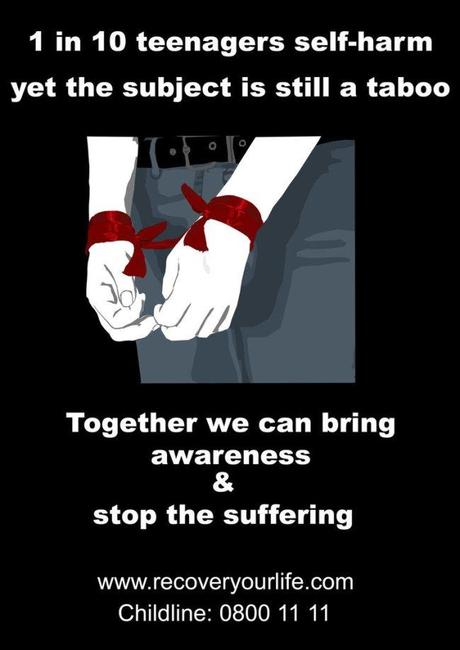
How Parents Can Help
Teenagers usually have a sense of how their parents will initially react once learning that they are self injuring. They fear punishment. They fear rejection.
It is normal for parents to become very frightened, confused, angry, and panicked when they learn that their teenager is deliberately self injuring. These various emotions are common reactions that most parents feel at the time of discovery. Parents should understand that it is not helpful to share these reactions with your teen. Remember that the feelings you are experiencing as an adult are the very same feelings your child is experiencing. In addition, your teenager is also feeling isolated, helpless and desperate–lots of emotional pain.
It is your job, as the parent, to learn how to effectively manage your own emotional reactions and provide your child with a role model and support system. Do not share any of your negative emotions with your child. If you lean on your child to tend to your emotional reactions to their self injury, you are continuing the pattern of how your child’s pain once expressed becomes their parent’s pain. Reassure your teenager that you will find help.
What Parents SHOULD NOT Do
1. DO NOT yell and scream.
2. DO NOT punish.
3. DO NOT minimize the seriousness of this unusual behavior.
4. DO NOT use a “contract” to stop self injury. It doesn’t work. It can lead to increased self injury.
5. DO NOT ask your teen to stop injuring themselves for you. They need time to learn how to move away from self injury. They must develop their own desire to stop injuring. They will stop when they are ready.
6. DO NOT say “you are just doing this for attention.”
7. DO NOT rationalize self injury by thinking that your teen is just going through a phase that will be outgrown. The majority of adults who self injure started their self injury during adolescence.
8. DO NOT let your fears prevent the treating professionals from doing their job– support the treatment plan.
9. DO NOT let your teen stop treatment prematurely.
10. DO NOT let your child’s resistance to treatment or refusal to go to sessions stop you from implementing the treatment plan. A depressed teenager does not have the judgment to make this decision–your teen is probably afraid to give up what seems to be working or feels incapable of doing so.
What Parents SHOULD DO
1. REMAIN CALM. Be a role model. Demonstrate that you can manage your difficult emotions.
2. TRUST YOUR GUT. If you suspect that your child is self injuring, ask your child “have you ever hurt yourself on purpose?” Upon the discovery, ask “what happened?”
3. BE GENTLE. Reassure your child that you are going to get them professional help; that and its going to be OK. Offer a hug– if your hug request is denied, you can hug with your words.
4. FIND AN EXPERIENCED THERAPIST AND PSYCHOPHARMACOLOGIST. Stay on the same page with the treatment team;follow all clinical recommendations even if these recommendations scare you. Remind yourself that you all have the same goals for your child.
Here are some links for support and more information:
SiOS- http://www.sioutreach.org/
ULifeline- http://www.ulifeline.org/topics/135-cutting
Lifesigns- http://www.lifesigns.org.uk/





